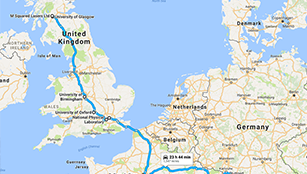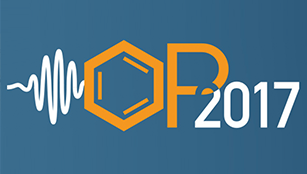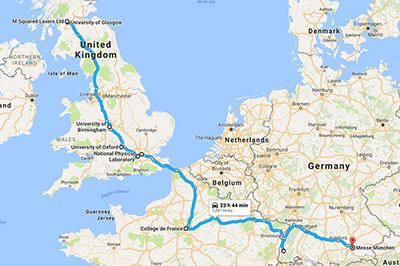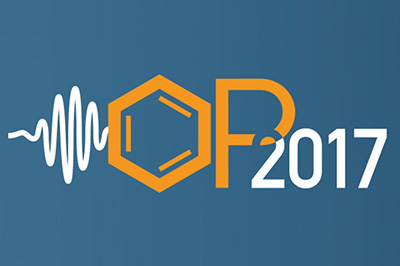The photonics and quantum technology business reveals the first industrial demonstration of a quantum gravimeter in the UK
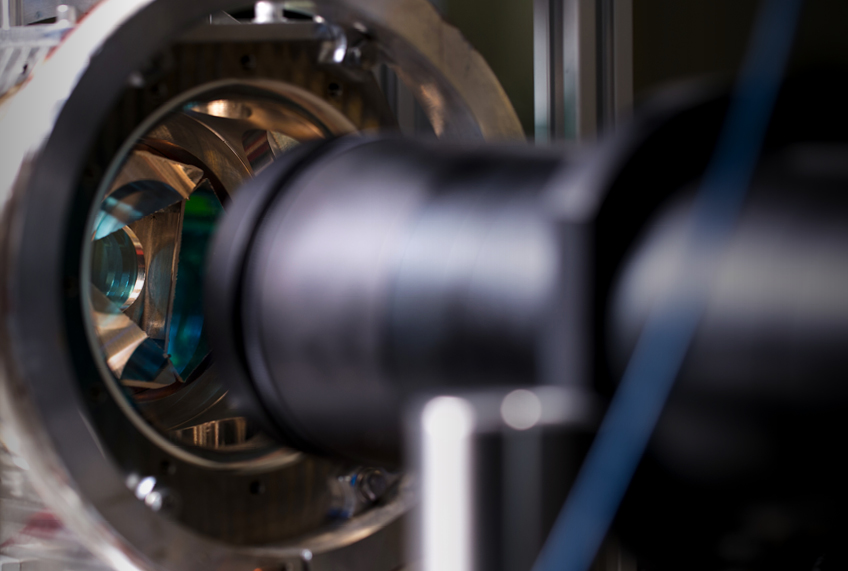
UK-based photonics and quantum technology company M Squared today releases news of ground-breaking developments for commercial quantum devices, most notably a device able to measure gravity - a quantum gravimeter.
Today's results are crucial in paving the way for new applications in many sectors, from the detection of new oil and gas deposits, surveying unknown underground infrastructures such as pipes and cables, monitoring the water table and preventing flooding and geological surveying.
In this project ‘ANAGRAM’, co-funded by Innovate UK and part of the UK National Quantum Technologies Programme, the expertise of M Squared in laser engineering and system integration was combined with the academic excellence of Professor Kai Bongs’ group at the University of Birmingham to create a collaborative team of experts to develop a device capable of highly sensitive gravity measurements.
Dr Graeme Malcolm OBE, CEO and Co-Founder of M Squared, explains how the technology works:
"A quantum gravimeter can detect and measure atomic interference; a manifestation of wave-particle duality that matter can display when it is in a quantum state at temperatures just above absolute zero. It uses quantum technology to bring unprecedented levels of precision to gravitational measurements and the detection of gravitational fields of hidden objects."
"Quantum gravimetry will bring a range of economic, social and environmental benefits in the coming years. Applications can be envisaged in many sectors, from the detection of new oil and gas deposits, surveying unknown underground infrastructures such as pipes and cables, even monitoring the water table. If we can transfer the technology into accurate seismic mapping, it could be used to predict natural disasters ranging from avalanches and volcanic eruptions to tsunamis."
M Squared is also working with Professor Ed Hinds' group at Imperial College London, developing complementary quantum technologies as part of the UK Quantum Technology Programme, a project also funded by the UK Defence Science and Technology Laboratory (DsTL). Co-funded by Innovate UK, the project ‘POLARIS’ is focussed on developing the UK's first commercial quantum '3D inertial sensing' device - an accelerometer. This technology measures acceleration using atom interferometry – paving the way for high-precision satellite-free navigation for use in mining, shipping and other transport means where GPS is hindered by dead areas and the effects of terrain and weather.
Dr Graeme Malcolm commented:
"Partnerships such as these are vital to the successful realisation of applications that can and should make a difference in the real world. M Squared's expertise in light-based technology, along with our close links to the atom optics community is enabling us to develop instruments for commercial use."
"Introducing devices such as these to the commercial market is a significant step towards bringing quantum technology into the real world. The huge promises of quantum technologies are already starting to become tangible."
Launched in 2006 by Dr Graeme Malcolm OBE and Dr Gareth Maker, M Squared has used its expertise in manufacturing high-performance, ultra-pure lasers and photonics instruments to develop technology for the emerging field of quantum technology since 2014.
M Squared first developed a magneto-optical trap in 2015, the precursor to its commercial atom interferometer, launched in 2016 - both UK commercial firsts. M Squared's atom interferometer enables high-precision measurements of the influences of motion, gravity and magnetic and electric fields on clouds of atoms and sits at the heart of a number of cutting-edge quantum technologies.
Notes to Editors
- For all enquiries, please contact:
Sean Canty
+44 20 7199 2215 / +44 7840 267592
sean.canty@wearesevenhills.com
Image of the Gravimeter available here:
https://www.dropbox.com/sh/v8bkz5yfvqauccz/AABDYlBgcUYlXMhyvvTahVRGa?dl=0
About M Squared Lasers
Photonics technology company, M Squared Lasers is a leading force in the laser and photonics market. From its headquarters in Scotland, the company designs and manufactures a range of award winning laser systems for scientific researchers, supplying world-leading institutions and universities such as Oxford, Cambridge and Birmingham in the UK and MIT, Harvard, NIST and JILA in the USA.
Through its dedicated Innovation Group, M Squared partners with research bodies and commercial partners globally to develop novel light-based applications that have the potential to tackle global problems.
Since starting out in 2006, M Squared has established itself as one of Britain’s most innovative, disruptive technology businesses. It has been recognised by the Deloitte Technology Fast 50, Deloitte EMEA Fast 500, Sunday Times Fast Track 100 and Sunday Times SME Export Track 100.
The company was selected by Bloomberg as one of its Business Innovators for 2016, by Everline as a Future 50 business, and awarded ‘Samsung Innovator of the Year’ at the Lloyds National Business Awards; M Squared also received the prestigious 2016 Queen’s Award for Enterprise in Innovation and 2017 Queen’s Award for Enterprise in International Trade.
The UK company employs more than 90 staff globally. The company has a worldwide customer base supported via a global network of distributors, representatives and local offices, including its subsidiary M Squared Inc. in the USA.
About The University of Birmingham
The University of Birmingham is ranked amongst the world’s top 100 institutions. Its work brings people from across the world to Birmingham, including researchers, teachers and more than 5,000 international students from over 150 countries.
The Quantum Technology Hub for Sensors and Metrology at The University of Birmingham is part of the UK National Quantum Technologies Programme. The National Programme aims to ensure the successful transition of quantum technologies from laboratory to industry. The programme is delivered by EPSRC, Innovate UK, BIS, NPL, Dstl, and the KTN.


